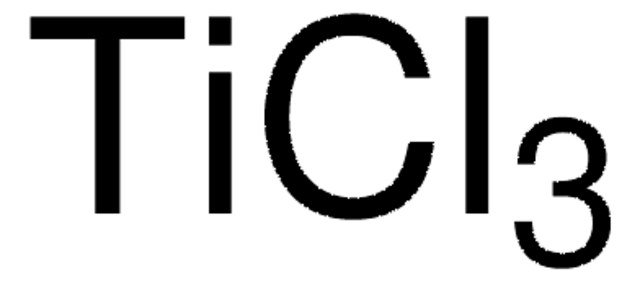All Photos(2)
About This Item
Linear Formula:
(NH4)2S
CAS Number:
Molecular Weight:
68.14
MDL number:
UNSPSC Code:
12352300
eCl@ss:
38030205
PubChem Substance ID:
NACRES:
NA.21
Recommended Products
form
liquid
concentration
20% in H2O
20.0-24.0% (titration by Na2S2O3)
storage temp.
room temp
SMILES string
N.N.S
InChI
1S/2H3N.H2S/h2*1H3;1H2
InChI key
UXXGWUQNRMPNKH-UHFFFAOYSA-N
Looking for similar products? Visit Product Comparison Guide
General description
Ammonium sulfide solution (aqueous ammonium sulfide) is a 20% solution in water. Ammonium sulfide is an inorganic salt with a sulfurous odor, which is commonly used in the food industry as a flavoring agent. The influence of ammonium sulfide treatment on (100)GaAs (gallium arsenide) surfaces has been studied by X-ray photoelectron spectroscopy (XPS) and reflection high-energy electron diffraction (RHEED). Its potential as an alternative to hydrogen sulfide for the transformation of activated amides to thioamides by thiolysis has been investigated. The reaction of ammonium sulfide with 3-hydroxy-2-butanone over a range of temperature has been reported to form various flavor compounds.
Application
Ammonium sulfide solution may be used to enhance the performance of type-II InAs/GaSb super lattice photodiodes by surface passivation technique.
Certificates of Analysis (COA)
Search for Certificates of Analysis (COA) by entering the products Lot/Batch Number. Lot and Batch Numbers can be found on a product’s label following the words ‘Lot’ or ‘Batch’.
Already Own This Product?
Find documentation for the products that you have recently purchased in the Document Library.
Customers Also Viewed
Burdock GA.
Encyclopedia of Food and Color Additives, 1, 146-146 (1997)
Ammonium sulfide passivation of Type-II InAs/GaSb superlattice photodiodes.
Gin A, et al.
Applied Physics Letters, 84(12), 2037-2039 (2004)
Carpenter MS, et al.
J. Vac. Sci. Technol. B, 7(4), 845-850 (1989)
Mild method for the conversion of amides to thioamides.
Charette AB and Grenon M.
The Journal of Organic Chemistry, 68(14), 5792-5794 (2003)
M G Narotsky et al.
Teratology, 56(4), 252-261 (1997-12-31)
Several low-molecular weight halocarbons have been shown to cause full-litter resorption (FLR), i.e., pregnancy loss, in Fischer-344 rats treated during organogenesis. To determine periods of gestation sensitive to acute exposure, a single dose of 150 mg carbon tetrachloride (CCl4)/kg was
Our team of scientists has experience in all areas of research including Life Science, Material Science, Chemical Synthesis, Chromatography, Analytical and many others.
Contact Technical Service







